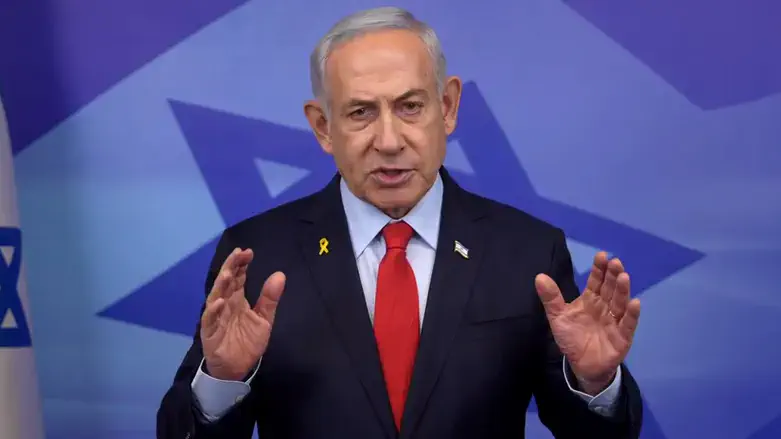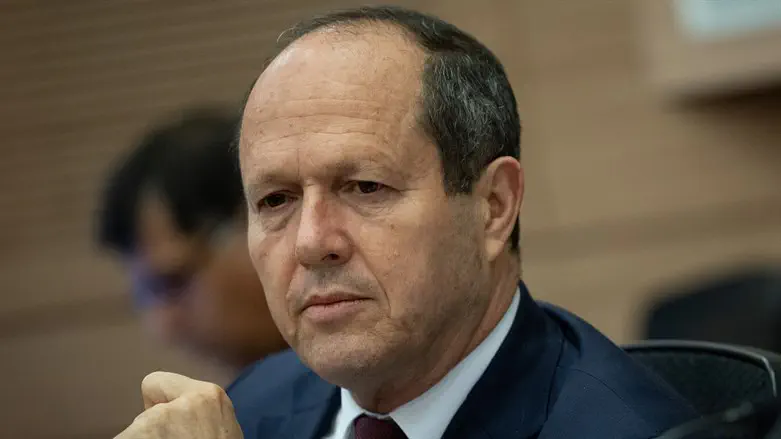by Stephen Soukup
Entitlement reform is the unavoidable challenge of our time—ignoring it risks economic upheaval, while addressing it demands resolve and compromise.

In the aftermath of Donald Trump’s reelection as president,
conservatives have spent a great deal of time and have spilled a great
deal of digital ink discussing the need to cut government spending and
the most effective means for doing so. A big part of the problem that
reformers face is that the vast majority of American spending is largely
untouchable, which is to say that it can’t—or at least won’t—be cut.
Some of this is defense spending. Some of it is the increasingly
punitive interest on the national debt. The biggest part of the nation’s
spending problem, however, is “entitlements”—Social Security, Medicare,
and Medicaid—programs that collectively constitute the “third rail” of
government spending.
The simple and inarguable truth of the matter is that the country
needs entitlement reform. Third rail or not, it must address the massive
budget gaps created by these programs or face serious economic and
financial consequences. The good news here is that we have a reasonably
good idea of how that reform should be done. The government should
harness the power of markets to bolster annual returns on investment of
Social Security funds. It should raise the retirement/qualification age
for Social Security and Medicare. And it should means test for those
same two, ensuring that it is not providing old-age welfare to those who
are financially able to live without it.
The bad news is that all these reforms will be met with aggressive
and bipartisan resistance. The problem with creating an “entitlement” is
that people henceforth feel “entitled” to it. One assumes that this was
considered a feature, not a bug, by the great minds who gave us the New
Deal and the Great Society. In any case, more sensible and well-read
men and women might have foreseen that such a scheme would, in time,
cripple the nation.
Alexis de Tocqueville is considered one of the greatest and most
perceptive observers of the grand experiment launched by the American
Founders in 1776. Before he made a name as the chronicler of “Democracy
in America,” however, Tocqueville made a trip to England to examine the
operation of democracy there. In 1833—two years before the publication
of the first volume of his American magnum opus—Tocqueville traveled to
England to study the impact of the previous year’s Reform Act.
Specifically, he was interested in the effect on the nation of vastly
expanded suffrage, which had been the centerpiece of that law.In England, he found a people and a nation in the throes of social
unrest, unrest that would spread to grip all of Europe within a decade.
While the consensus attributed much of that unrest to the newly expanded
suffrage, through discussions with various political figures and
observers, Tocqueville settled on a different culprit, the nation’s
“poor laws.”
Starting in the early 1530s, King Henry VIII and his advisers began
the formal separation of the Church of England from Rome and the
consolidation of political and religious authority under the English
crown. In time, this process necessitated the closing or destruction of
Catholic monasteries and religious orders, which had been the source of
most private charity in the country, most of the services provided to
the poor and indigent to help them cope with the difficulties of
late-medieval life. In response, various forms of public charity were
instituted (or enhanced) on an informal basis, as needed, throughout the
remainder of the century. In 1597 and 1601, Queen Elizabeth I
formalized these laws with the Poor Relief Acts, thereby creating the
first official welfare state in the world.
Two hundred years later, most of England’s political and economic
elites agreed that the poor laws needed to be reformed, although there
was little consensus about how best to do so. What had started as an act
of decency and the recognition that large institutions can play a
significant role in ameliorating temporal human suffering had become a
social and economic mess, paradoxically pitting the poor against the
very rich, whose wealth and resources were consumed to aid them in their
need.
Against this backdrop, Tocqueville examined England’s Poor Laws,
studying their impacts on the poor, the rich, and the whole of society.
In his often overlooked classic, Memoir on Pauperism, he drew
several conclusions that have proven exceptionally shrewd and even
prophetic. While governments continue to ignore or deny Tocqueville’s
observations, the veracity of his deductions remains largely
unassailable.
To be clear, Tocqueville noted that some concession from the rich to
the poor through the state—which he termed “public charity”—was
unavoidable. Even in 19th-century England, it was clear that private
charity was inadequate to address all the addressable needs of society.
Public charity would always be perilous and less than ideal, but it
inarguably had a role in the modern state.
Additionally, Tocqueville noted that the spirit in which public
charity was conceived and employed was quite noble and generous. “At
first glance,” he wrote, “there is no idea that seems more beautiful and
grander than that of public charity.” It appeared, at least
superficially, that public charity could provide the best of all
possible worlds, satisfying society’s most desperate concerns in a fair
and honorable way: “At the same time that it assures the rich the
enjoyment of their wealth, society guarantees the poor against the
excessive misery. It asks some to give of their surplus in order to
allow others basic necessities. This is certainly a moving and elevating
sight….”
As is often the case, however, reality turned out to be much
different than the theory. Because the giving and the receiving are made
compulsory, the beauty and grandeur are fleeting. Tocqueville wrote
that private charity—the willing act of man providing for his fellow
man, sharing voluntarily from his wealth to enable and empower his less
fortunate neighbor—“establishes valuable ties between the rich and the
poor,” a “deed [that] itself involves the giver in the fate of the one
whose poverty he has chosen to alleviate.” Moreover, Tocqueville noted,
“the latter . . . feels inspired by gratitude.”
Compulsory “giving,” by contrast, severs those bonds and serves only to “inflame society’s sores”:
The law strips the man of wealth of a part of his surplus
without consulting him, and he sees the poor man only as a greedy
stranger invited by the legislator to share his wealth. The poor man, on
the other hand, feels no gratitude for a benefit that no one can refuse
him and that could not satisfy him in any case . . . . Far from uniting
these two rival nations, who have existed since the beginning of the
world and who are called the rich and the poor, into a single people, it
breaks the only link which could be established between them. It ranges
each one under a banner, tallies them, and, bringing them face to face,
prepares them for combat.
In essence, then, the conclusion Tocqueville draws from the English
Poor Laws is that compulsory, institutionalized altruism, while seeming
noble and representing a real human desire for benevolence, actually
causes significant harm. It wrecks the spirit of gratitude in those
benefitting from the “altruism.” It fosters bitterness and resentment
among those whose property is used to enable compulsory charity. And,
perhaps most importantly, it damages the entire, previously functional
system, rendering it quarrelsome and, over time, unworkable. The taking
or diminishing of one’s property for the purpose of redistribution to
other entities can’t help but create enmity and frustration on the one
hand and ingratitude and entitlement on the other, all while destroying
continuity and unleashing systemic destruction.
How the United States should address these issues now, nearly a full
century after creating its entitlement programs and its parallel
“entitlement” problem, is debatable. What is not, though, is that it must
do so. For decades our best and brightest political and financial minds
have pondered the most effective ways to reform entitlements, without
giving much thought to making those reforms palatable to a people whose
social bonds have been warped and reset by “public charity.”
If we, as a people, do not find a way to deal with the issues about
which Tocqueville tried to warn us, we will suffer a prolonged period of
economic and financial upheaval. Clearly, the best time to have
considered these matters would have been in 1935, when Congress passed
(and FDR signed) the Social Security Act. The second-best time is now.
We may not get another chance.
Stephen Soukup
Source: https://amgreatness.com/2024/11/30/tocqueville-and-americas-spending-problem/
Follow Middle East and Terrorism on Twitter

















